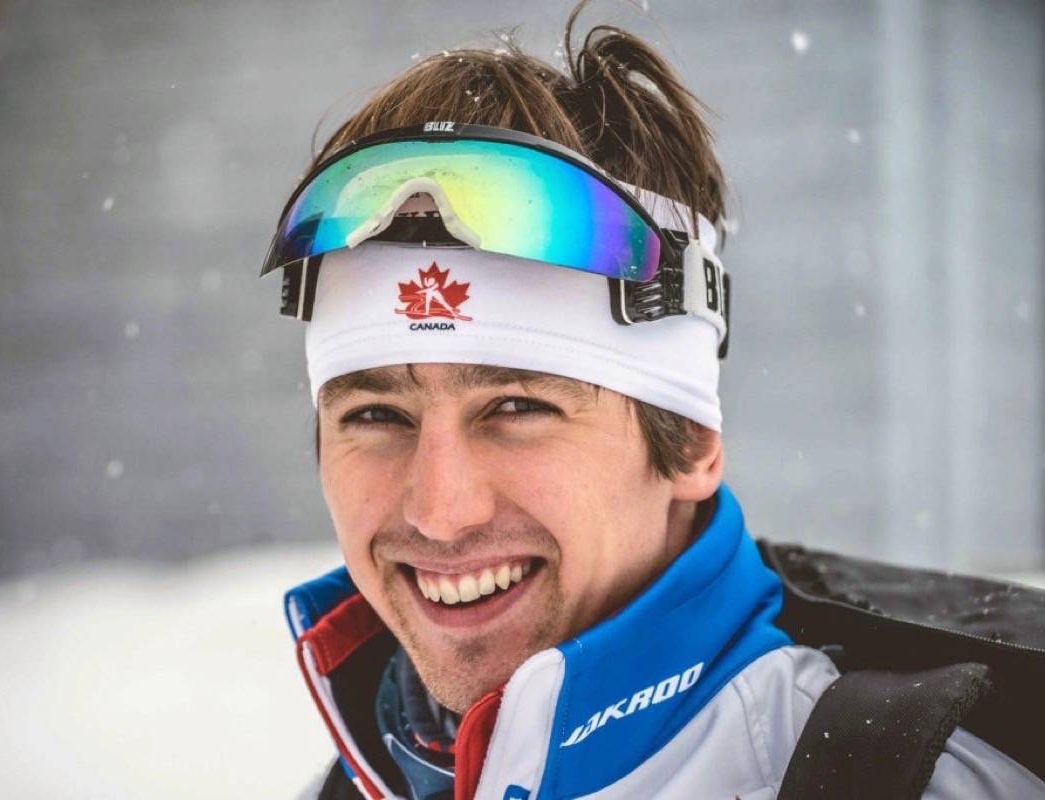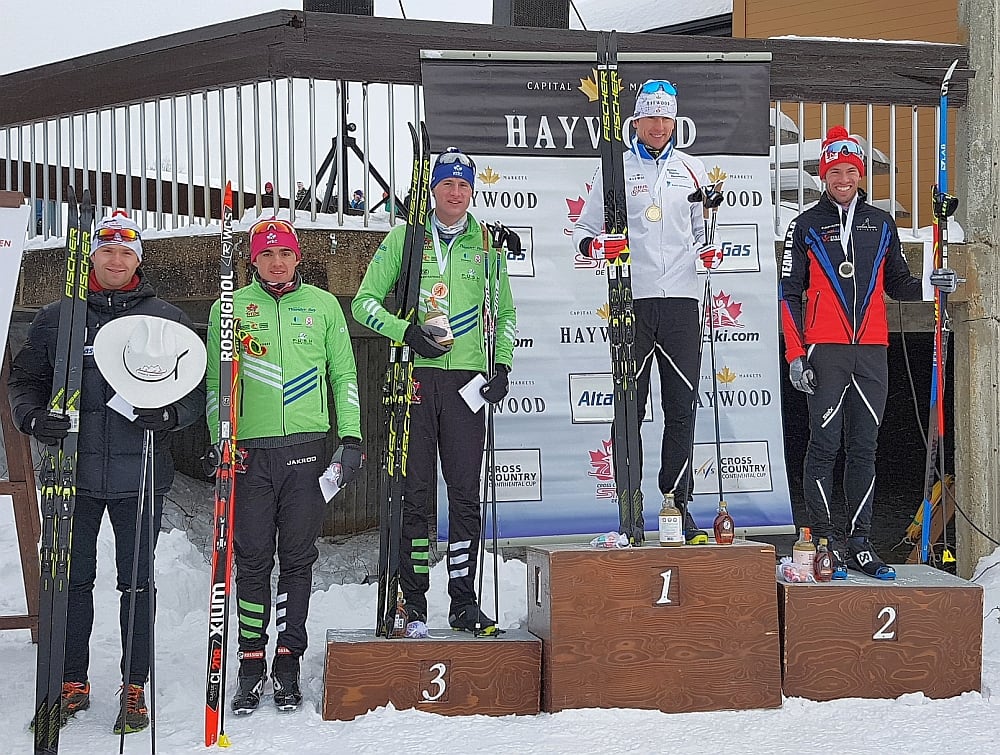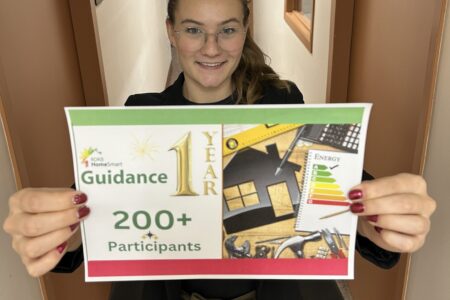Inspiration and development of a Kootenay ski racer: Julien Locke
By Tom Gomez
Going back in time: it’s 2002 at the Salt Lake City Olympics. The Canadian Cross Country Ski Team is competing with new Head Coach Dave Wood and developing phenom, Becky Scott. Since the Nagano Games, four years previous, Coach Wood had used a model of hard work and long vision to take a Team in some disarray and turn it into a serious contender on the world stage.
Scott went on to win a gold medal at the Salt Lake City (though it took two years to be upgraded from bronze after the two Russian women ahead of her failed doping tests), and Dave Wood went on to be what Traxx Magazine called “North America’s winningest cross country ski coach.”
Scott’s performances, and that of coach Wood’s team had some ripple effects.
One of those played out in the small Kootenay town of Nelson, B.C., where a ten-year old boy named Julien Locke was glued to the TV. Locke had been a cross country skier since he was three years old, but he also was a competitive swimmer. After watching Scott, he began to focus increasingly on ski racing.
Now 25, a member of Rossland, B.C.’s Blackjack Ski Team and one of Canada’s bright young prospects in the sport, Locke says “Watching Becky in 2002 proved to me that it is possible to be Canadian and make it to the top of the sport.”
After a very successful Vancouver Olympics in 2010, Coach Wood retired from the National Team to take the position of Club Coach at the Blackjack Ski Team. Fate had brought Wood and Locke, then in his third year on the team, together.
In 2017, Julien was just breaking onto the World Cup Circuit with the 2018 PyeongChang Games in South Korea just around the corner. I sat down with him the evening before he flew to Quebec for the NorAm Olympic Trials. His story illustrates how elite athletes rarely fall out of the sky. It’s more often about environment, hard work and — yes — serendipity. Here’s our conversation:
TG: How do you handle pressure?
Locke: It is important to have pressure. It’s good for me anyways because it seems to be less of a distraction for me than others, and it gives you a reason to push yourself. I like it when the stakes are higher
TG: When you were a young skier, Blackjack’s George Grey was having a successful World Cup career, did that influence you?
Locke: Having George around was important to my development as an athlete; seeing that it is possible to come from a small town and ski on the World Cup. George Grey is well known for his determination and work ethic in the sport; he instilled the belief that if you put in the work you will eventually see the benefits. That’s huge for athlete development!
TG: How have you found the competition in Europe?
Locke: Most skiers realize, once they get to World Cup, that the famous skiers who have been their heroes, are just normal people that have got there by working incredibly hard. I noticed from an early age at each ‘big event’ that the fast kids didn’t seem that different than me. Having local George Grey as a Blackjack skier and a World Cup contender was a big part of that as well.
TG: You must get asked this a lot, but what is the World Cup like?
Locke: Every time I step up a level, I realize that it is quite similar to the last one. The stakes and the competition are relative to where you are. I am NOT used to 30,000 fans lining the course, but I’m so focused on racing that it is very much a side element.
TG: Your performances in the early races in Europe put you ahead of most of the Canadian Team but just short of getting into the final round of 30 for a potential ticket to Korea. What do you need to make that happen?
Locke: What I’m looking for is 1 – 3% better performance. I learned a lot about pacing, looking at the splits in my first two races. I can start faster, that’s where I lose the most time.
TG: What was the biggest moment in your career?
Locke: In 2008 after my first year training full time at Blackjack, I was 4th in the A Final at Nationals in the Juvenile category. I understood then what it takes.
TG: What about the Blackjack Skier Development program? Why is it so successful?
Locke: Dave Wood’s experience provides a clear vision of the end goal at the highest level, of what it takes and what is important to each individual athlete to get there. It’s totally athlete centered and not many clubs have that. He also creates a belief that all the effort you put in will be a catalyst to your success. I’m a huge believer that preparation is what makes you successful. It’s the little things that you do to succeed that makes it happen.
TG: It’s not just about the elite athletes though is it?
Locke: No, the Blackjack Program is in a unique position to be able to support skiers from the Bunnies program up to the highest level. It’s going to be interesting to watch the athletes that Dave started coaching at 12 years of age or even younger.
* * * *
Next stop for Julien is the NorAm/Olympic qualifier at Mt St Anne Quebec. From there he flies to Europe for the Sprint Races around the streets of Dresden GDR. A ticket to the Olympics will depend on many factors that are out of his control, so Julien states, “I’m just going to focus on doing my best races.”
At the time of writing, Julien had won the Olympic Trials Finals but still does not have his ticket to Korea. If he has shown us anything it is that neither this, nor anything else, will distract him next time he slides up to the start line.
The Canadian Team members will be named on January 25, 2018.
(Photo of Julien Locke, below, by Russell Kennedy.)


























